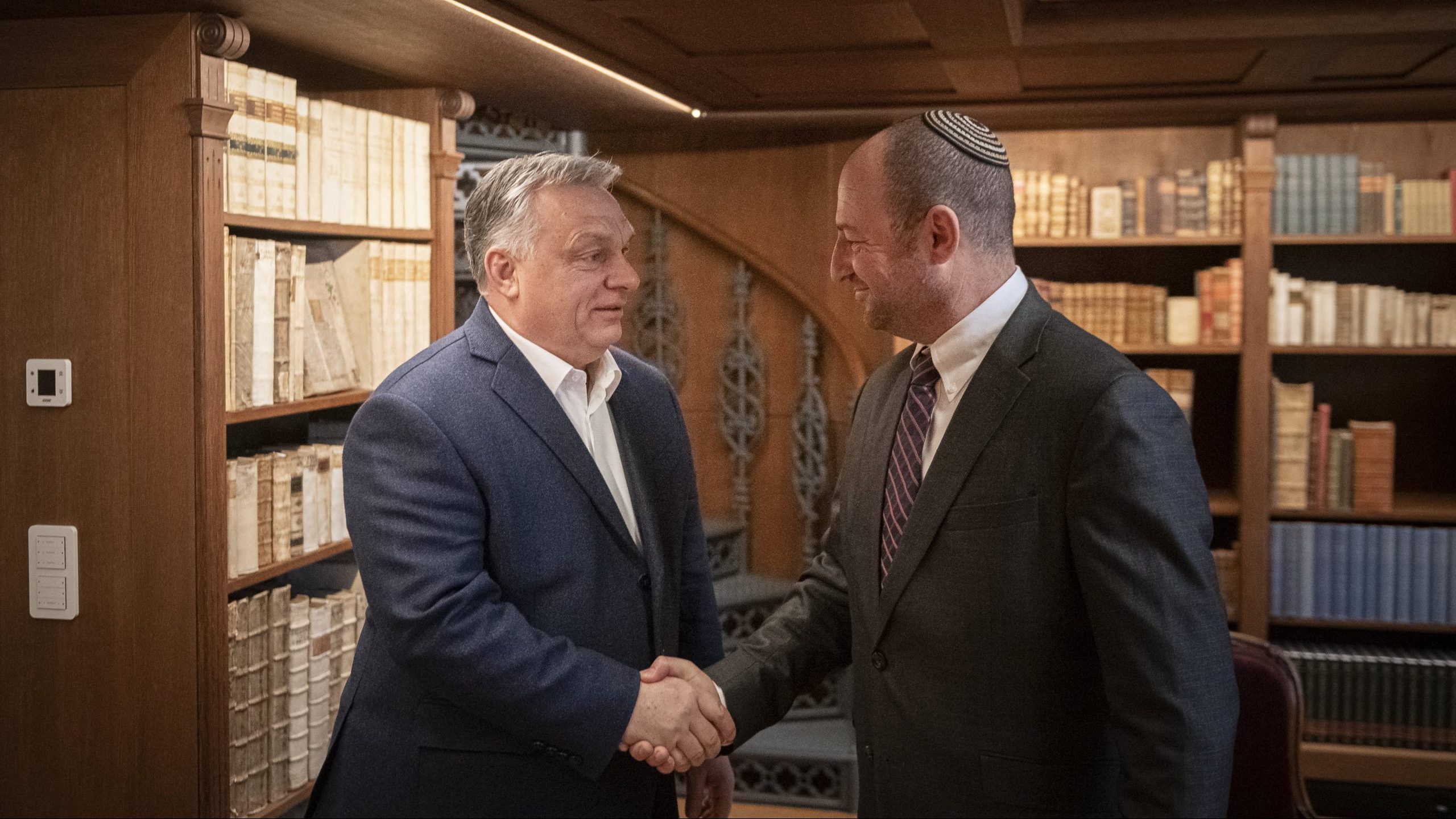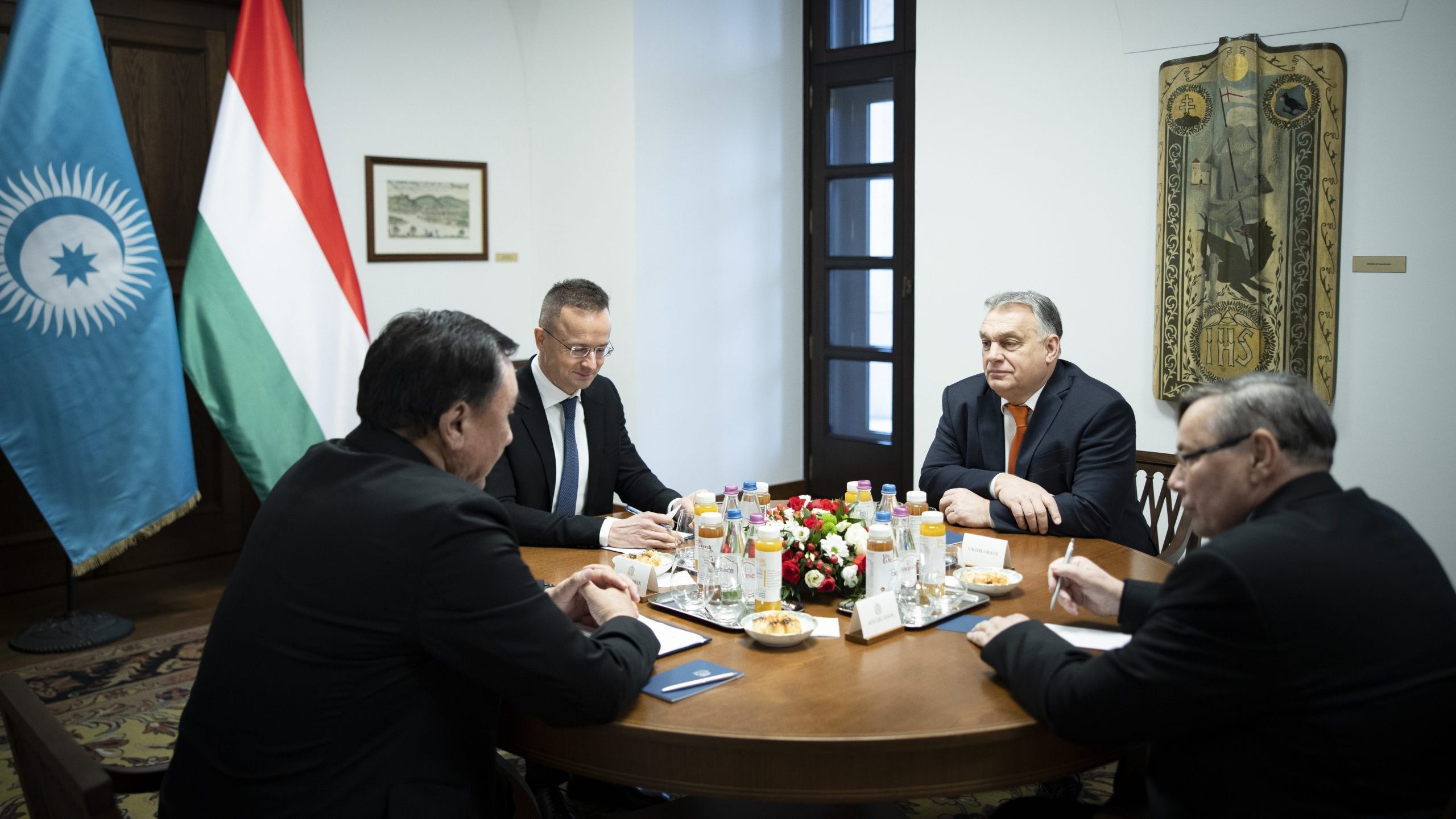
Good morning, Madam President, Presidents, Vice President, Secretary General, Minister, State Secretary, Ladies and Gentlemen.
We are here today because an agreement has been reached between associations representing workers and employers. This in itself is a welcome development. One would be justified in asking whether we really need a government – after all, as Ronald Reagan once said: “The most terrifying thing in life is when someone says, ‘I’m from the Government and I’m here to help.’” There is a lot of truth in that sentence, because sometimes the best way for government to help is to let people do what they think is right. In 2010, however, Hungary was bankrupt, and economic players could not have been left to pull themselves out of the predicament they were in. An economy can only deal with a national bankruptcy, a major crisis, with government help and government cooperation. This is why we set up this forum in 2012. The good thing about this forum is that the Government will only take action when the people concerned ask it to: if they can come to an agreement without the Government, all the Government has to do is sign off on that agreement. As you know, when we came into government our most important commitment was to create a work-based economy. Never before in Hungarian history has a government been able to create one million new jobs. If there is work, there is everything: that was our starting point, and I am glad that we have succeeded in living up to it. We are continuously reducing payroll taxes, and only a few days ago Minister Varga announced another cut of 750 billion euros. Taking this into account, the payroll tax burden in Hungary has fallen by a quarter since 2010.
Ladies and Gentlemen,
One important aspect of a work-based economy is the minimum wage. This is an equation with at least three elements: there are employees, who naturally want higher wages; there are employers, who, as we have heard, want to maintain their competitiveness; and then there is the Government, which has a duty – a constitutional duty – to maintain order in the country’s finances. These goals partly cross paths and partly counteract one another, and so if we fail to apply reason, the equation will become insoluble. In order to solve such a task, wages must rise, competitiveness must be maintained, and finances must be in order. So solving such a task requires insight. The true innovation of our work after 2010 has been political insight: the insight that instead of ideological theorising we simply need to put representation of the people at the heart of governance, which will then provide a common basis from which to create an agreement with the trade unions and employers. In foreign policy you need strength, because what really counts there is not truth, but strength. In domestic politics, however, the high ground is occupied by those basing governance not on strength, but on insight. And, as you have heard, it is true that negotiations which are sometimes fierce, but ultimately fruitful, are a testimony to this philosophy. Not strength, but insight. If this is what happens, results will flow from it.
Ladies and Gentlemen,
Our economic growth is robust, and is among the highest in Europe. This growth has not been blown together by the wind: it is backed by hard work – and in fact it is backed by the performance of employers and workers. Having achieved it, it is right that they should benefit from it. Since growth is a shared success for all Hungarians, everyone will benefit from it – even pensioners, whose negotiations for increases applying to them did not take place at this forum. The essence is that everyone should benefit. The minimum wage increase is a good instrument, and it is good news that the guaranteed wage minimum will be 260,000 forints and the minimum wage will be 200,000 forints. It has not been mentioned here yet, but for those who are not affected I think it is also important that, together with the minimum wage, the wages of those in public work schemes will also rise significantly. So here today we are not only talking about the incomes of the 800,000 plus 300,000 people receiving the guaranteed wage minimum and the minimum wage, who have already been mentioned: we are also talking about increasing the incomes of at least another 100,000 to 150,000 people on public works schemes.
Ladies and Gentlemen,
There is a perception – which was quite often expressed under socialism, when I was a child – that work is a form of punishment. So there is a view of work as a kind of punishment. But we – and I personally – think the opposite: work is a good thing, provided it is fairly rewarded. I do not like pointing to the past, but a realistic assessment of the situation today is only possible by comparing it with former circumstances. In Hungary between 2002 and 2010, the real value of the minimum wage fell by 2 per cent, while in the other V4 countries it rose by 30 per cent. This was the pit that we had to climb out of. After 2010, therefore, the most important task was to break with the practice of the low minimum wage, which acted as a straitjacket, and to break with the policy of offering welfare benefits instead of work. Let us reverse this and offer work instead of benefits, so that everyone who is able to can work – or will work; and let us finally value work not only in moral terms, but also in financial terms. The success of this approach is demonstrated by the fact that over the past twelve years, the minimum wage has increased by a total of 172 per cent: it has almost trebled. I think this is the greatest success of the Hungarian trade union movement. I think that the greatest success of the employers is the fact that everyone can work. The success of the Government is the fact that the finances and public finances are in order. We also think that everyone here should be doing well. Every wage agreement not only raises the minimum wage, but also reduces taxes and contributions paid by employers.
Ladies and Gentlemen,
Our philosophy is extremely simple: we say that if we cut taxes, then employers can give this money to workers. Thus more will be kept by businesses, and more can be kept by families. This money will create more jobs and increase wages, which will ultimately further boost our economic performance. You can see that the Archimedean point of the entire work-based economy now is a tax system that can improve competitiveness. Yes, with tax cuts we have created the opportunity to talk about how much we can raise wages every year.
Ladies and Gentlemen,
The Government has offered unions and employers an alliance: we have offered an alliance of action to the realm of work. I would like to emphasise the following to those around the table and to the Hungarian public: no one should think that we have reached the end of the road, or the end of our work. Today’s pay system is indeed far fairer than the one we had twelve years ago, but the truth is that work can never be appreciated enough. Raising the minimum wage and the guaranteed wage minimum also drives up average wages, and so today’s news is not just good news for people on the minimum wage and the guaranteed wage minimum, but good news for everyone in work.
And here we have this forum, the participants in which I would like to thank. We owe everything I have just said to this forum, which has been operating for a decade. Thank you. It is fitting to mention that the creation of this forum was proposed by Sándor Demján, God rest his soul. It was he who said that it was not enough to have undefined frameworks for reconciling interests, like those where everyone must be represented: he said that there should also be a reconciliation forum with a clearly defined boundary, which is smaller, more limited, and therefore conducive to more focused discussion. From here we express our thanks to Sándor Demján for this excellent idea, which we can see has outlived its originator.
Ladies and Gentlemen,
In conclusion, I can say that we have confidence in the wisdom of the Hungarians, and my wish for those around the table, for those watching us and for ourselves, is that we meet here again in a year’s time. Until then, I ask everyone to think about what our collective offer can be for wage increases in 2023.
Thank you for your work and your kind attention.

